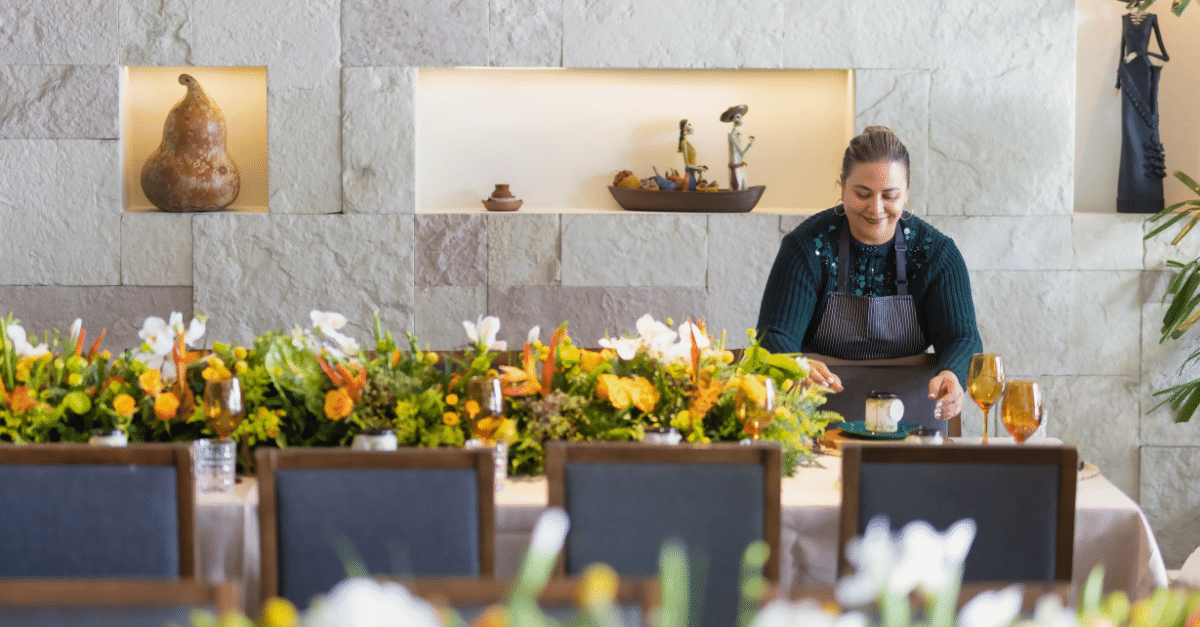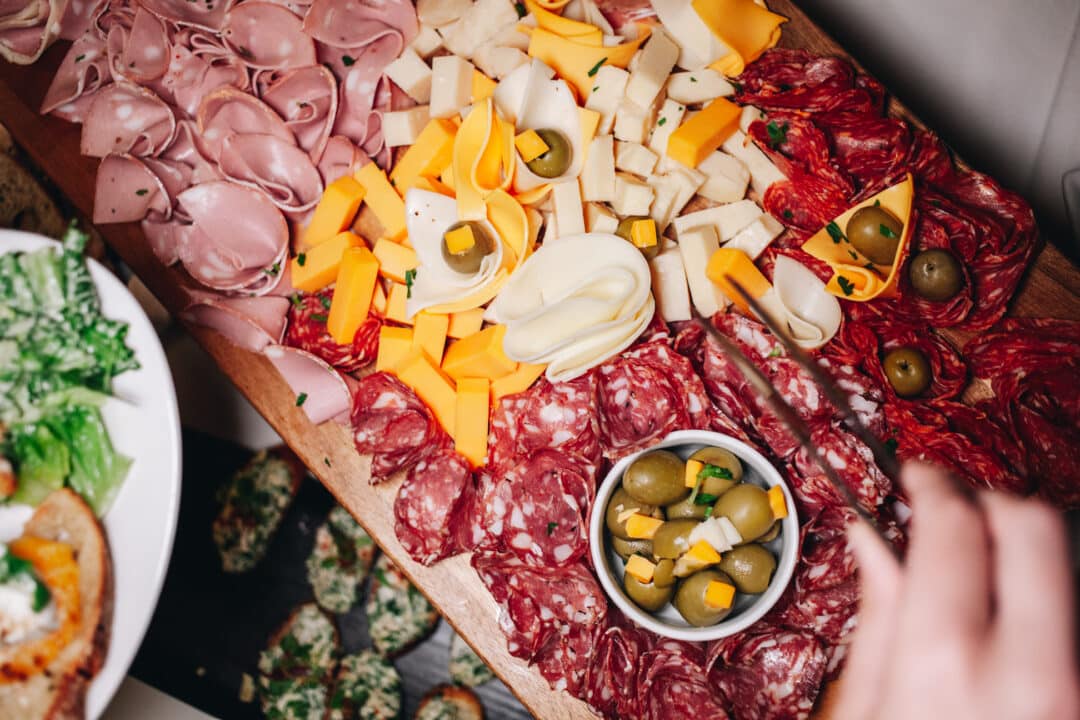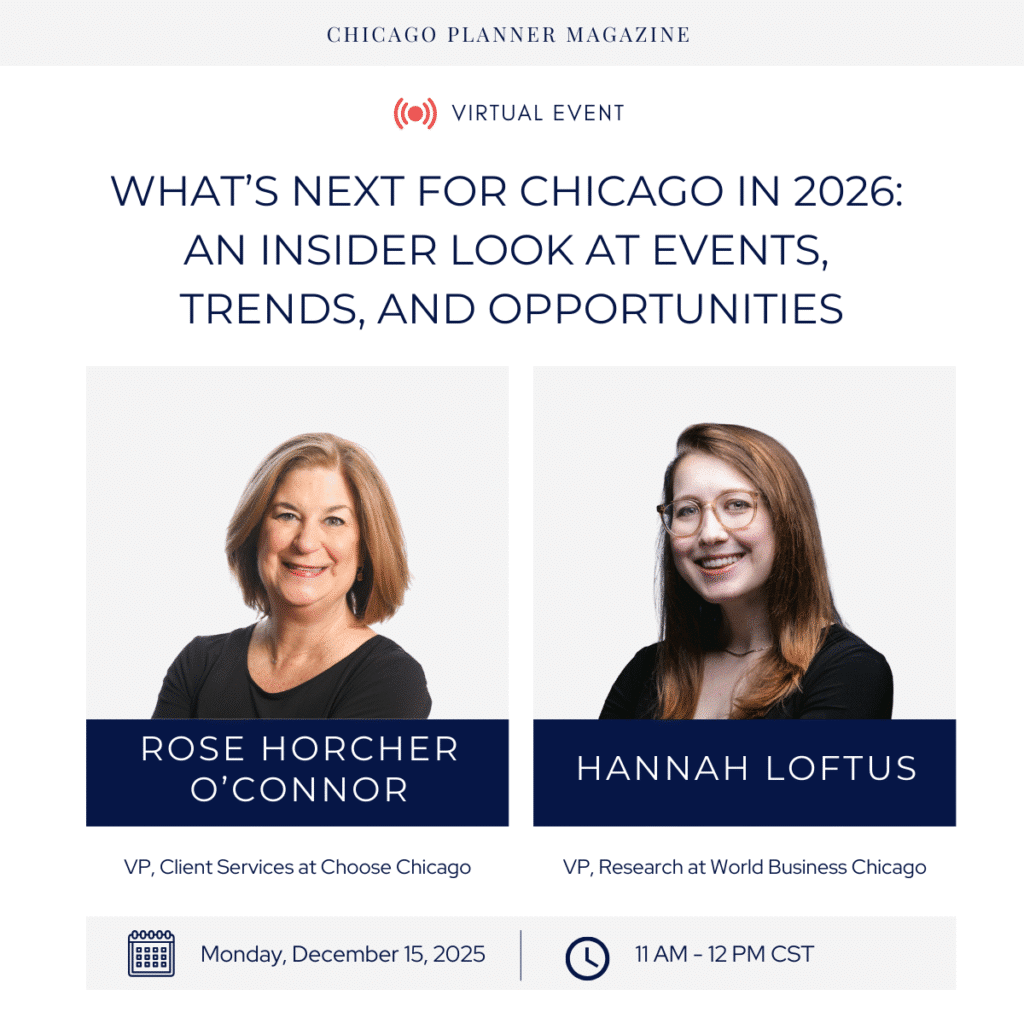
If you have ever wondered how to start a career in events, you are not alone. Getting into the events industry takes more than a love of parties or organization skills to build a career that lasts. Event professionals balance long hours, high expectations, and constant problem-solving with the reward of creating experiences people never forget.
Chicago Planner Magazine shared tips on getting a job in events back in 2021, but a lot has changed since then. The industry has grown, event technology has evolved, and the opportunities for new professionals have never been greater.
Whether you are just starting your career or considering a transition into hospitality or event management, now is the perfect time to enter the field. Here is how to get started and what has changed since 2021.
Understand the different types of planning
Understanding how to start a career in events begins with identifying what part of the industry fits you best. One of the biggest misconceptions about event planning is that it is all about weddings, galas, and glamorous parties. In reality, the industry is made up of many specialties, and each one requires unique skills and strengths.
Generally, planners fall into two main categories, social and corporate planning. Social planners focus on personal celebrations such as weddings, birthdays, anniversaries, showers, and other life events. They often involve close client collaboration, detailed personalization, and emotional connection.
Corporate planning includes a broader mix of work such as conferences, retreats, client dinners, trade shows, meetings, and experiential events to name to more common categories. Many corporate planning professionals identify as meeting planners, event managers, or event producers, depending on their role and the company they represent (don’t call them a party planner!). Some planners work directly for corporations or associations as in-house staff, while others work as third-party planners for agencies or destination management companies (DMCs) that coordinate events on behalf of multiple clients.
The events field has also become more formally recognized as its own industry, with more defined roles and specialties emerging every year. What used to be broadly referred to as “event planning” now includes titles such as event producer, experiential marketing manager, creative event director, and event technologist. This growth reflects both the complexity of modern events and the opportunities available for professionals with specialized expertise.
Taking time to learn the differences between event types will help you decide where you will shine. Some planners thrive on weekends filled with weddings, while others prefer weekday meetings and large-scale productions. Understanding your strengths early helps shape where you should focus your efforts.
Talk to professional planners about their work
Once you have a sense of which direction you want to take, talk to people who are already working in those roles. Event planning looks different depending on the type of events, clients, and company structure. Speaking directly with industry professionals gives you insight that job listings cannot.
Reach out to planners, venues, and vendors in your area to learn about their paths into the field. Many professionals are happy to share advice when approached respectfully and with genuine curiosity. Listening to how they manage timelines, budgets, and client expectations will help you understand the realities of the work and where your skills could shine.
As technology continues to shape the events industry, it is helpful to ask how planners are adapting. Since 2021, client expectations have evolved dramatically, with more focus on experience-driven design, seamless digital integration, and sustainability. Understanding how these changes impact workload, planning processes, and budgets gives you a more accurate picture of what the industry looks like today.
Joining professional associations is also one of the best ways to connect and grow. Organizations such as Meeting Professionals International (MPI) and the Professional Convention Management Association (PCMA) host networking events, educational programs, and workshops that introduce you to experienced professionals and potential mentors. You can also get involved with your local travel and tourism bureau or chamber of commerce to learn about upcoming community events and partnership opportunities.
Building your connections early helps expand your vendor network, which is essential to your long-term success as a planner. For more on this, read our related feature on how event planners can build a trusted vendor list.

Assess your skill set
Event planning requires much more than creativity and enthusiasm. Successful planners are excellent communicators, strong multitaskers, and detail-oriented professionals who thrive under pressure.
Before applying for roles, take time to evaluate your current skills. Are you comfortable managing several projects at once? Do you communicate clearly in writing and conversation? Can you work with clients, vendors, and teams with different priorities?
If you are transitioning from another field, your previous experience can be a major advantage. The skills valued now reach beyond logistics. Experience in marketing, communications, or technology can be a major benefit, since today’s events often rely on storytelling, branding, and content to reach audiences. If you understand how to promote a message, interpret analytics, or manage engagement online, those strengths will set you apart. Visibility is a key part of modern event success, and planners who understand how their events live beyond the day itself bring immense value to their clients.
Even if you have not worked in events before, many industries develop skills that apply to planning. Customer service, project management, and hospitality experience all translate well. Identify what you do well now, then focus on strengthening the skills that will make you stand out in the events field.
Many planners start in support roles such as assistant coordinator, event intern, or administrative support for venues or planning firms. These entry-level positions allow you to build confidence while learning how the planning process works from the inside.
Educate yourself and get certified
Education can help you stand out in a competitive industry and build the confidence to take on larger responsibilities. While degrees in hospitality, business, or communications are valuable, certifications and continuing education are equally important for career growth.
Recommended programs and certifications include:
-
Meeting Professionals International (MPI) – The Certified Meeting Professional (CMP) credential remains one of the most recognized in the industry.
-
Professional Convention Management Association (PCMA) – Offers educational tracks focused on business events, strategy, and professional development.
-
Event Leadership Institute (ELI) – Provides hands-on event management courses and workshops for both beginners and experienced planners.
-
Digital Event Strategist (DES) – A strong certification for professionals interested in hybrid and virtual event production.
-
Cvent training and AI tools – Helpful for learning the platforms and technologies that drive many modern events.
-
Creative and client management skills – Certifications or courses in Canva, LinkedIn Learning, or HubSpot can help you communicate visually, market effectively, and manage clients more strategically.
Today, event planning is more than managing checklists and contracts. It requires creativity, adaptability, and an understanding of your client’s business and audience. Since 2021, the demand for strategic thinking and innovation has grown. Planners now use tools like AI and data analytics to personalize experiences and measure success, making continuous learning more important than ever.
Investing in your education not only makes you more qualified but also demonstrates your commitment to professionalism and long-term success in the events industry.

Get experience
Event planning relies heavily on experience. Employers and clients want to know that you have been part of live events and understand how to manage both the preparation and the day-of execution.
Great ways to get experience include internships, volunteer opportunities, and assisting with events for nonprofit organizations, hospitality associations, or community groups. These opportunities provide valuable insight into logistics, setup, and on-site management while helping you build relationships with vendors and peers.
You can also gain experience by working for venues, caterers, florists, photographers, or production teams, since many event planners start their careers supporting vendors before moving into full-time planning roles. This not only builds your portfolio but gives you a stronger understanding of how each part of an event comes together.
As you gain experience, document your work with photos, testimonials, and detailed notes. A growing portfolio that showcases your skills and professionalism will help you stand out when applying for future opportunities.

Build your network
In the events industry, relationships matter. Your network of vendors, venues, and peers can often open doors faster than a job application.
Join professional organizations such as MPI, NACE (National Association for Catering and Events), ILEA (International Live Events Association), or HSMAI (Hospitality Sales and Marketing Association International). Attend educational sessions, networking nights, and venue open houses to meet professionals across the hospitality and events community.
Social media has also become a powerful tool for visibility and connection. Whether you prefer LinkedIn for professional networking, Instagram for visual storytelling, or Pinterest for creative inspiration, focus on the platform that fits your strengths and use it to share your work, connect with vendors, and grow your reach. Being consistent and authentic online can help your career grow just as much as in-person networking.
As your career grows, maintain a reputation for reliability and professionalism. The events community is smaller than it seems, and your relationships will shape your opportunities.
Expert planners are built through years of hard work, attention to detail, and the lessons learned from every event. If you are ready to learn how to start a career in events, now is the time to begin.




0 Comments